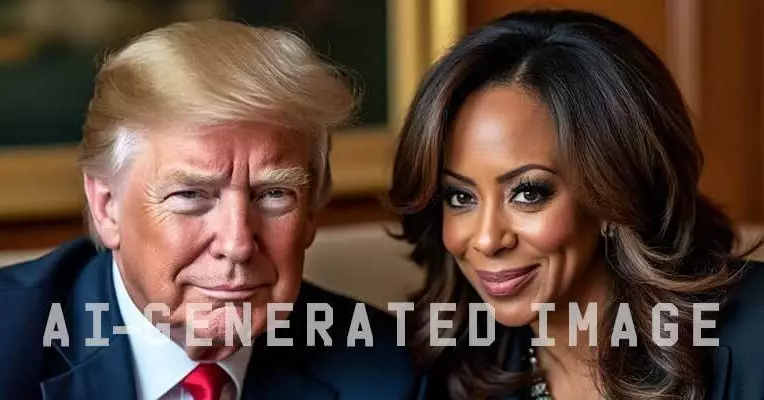The recent incident involving Elon Musk sharing a fake image of Kamala Harris dressed as a communist dictator sheds light on the limitations of AI image generators. The image, created using X’s Grok tool, bore little resemblance to the vice president. Many users pointed out the inaccuracies in depicting Harris, with some noting that the AI ended up posting a random Latina woman instead. This highlights a major flaw in AI technology – the inability to accurately depict individuals, especially prominent political figures like Harris.
AI-generated images of Harris often fall short of capturing her likeness. A tweet featuring a video showing Harris and Donald Trump in a romantic relationship went viral, with almost 28 million views. However, the portrayal of Harris in the video was inconsistent and at times, resembled other individuals like former First Lady Michelle Obama. Despite several attempts, using the Grok tool to create a photo of Harris alongside Trump failed to accurately depict the vice president. This raises concerns about the reliability and accuracy of AI image generators when it comes to portraying political figures.
Unlike some high-profile AI image generators that restrict users from creating images of political figures, tools like Grok allow for the creation of fake photos of prominent personalities. However, there are evident challenges in generating accurate depictions, as seen in the case of Kamala Harris. The issue lies in the lack of well-labeled images of Harris compared to figures like Trump, making it difficult for AI models to generate realistic portrayals. The CEO of Freepik, a company hosting various AI tools, attributes this to Harris being a relatively new celebrity in the AI image-making scene.
Underlying Factors Contributing to the Challenges
One of the underlying factors contributing to the challenges faced by AI image generators in depicting political figures is the limited availability of labeled images. Models like diffusion models rely on thousands of labeled images to generate accurate depictions. However, the disparity in the number of images available for figures like Harris compared to Trump creates a significant hurdle for AI technology. As Harris continues to gain prominence, AI image generators may need more time to catch up and accurately depict her likeness.
The incident involving the fake image of Kamala Harris sheds light on the challenges faced by AI image generators in accurately depicting political figures. Despite advancements in AI technology, the limitations in generating realistic portrayals of individuals like Harris underscore the need for further research and development in this field. As AI continues to play a significant role in image generation, addressing these challenges is crucial to ensure the accuracy and reliability of AI-generated content.

